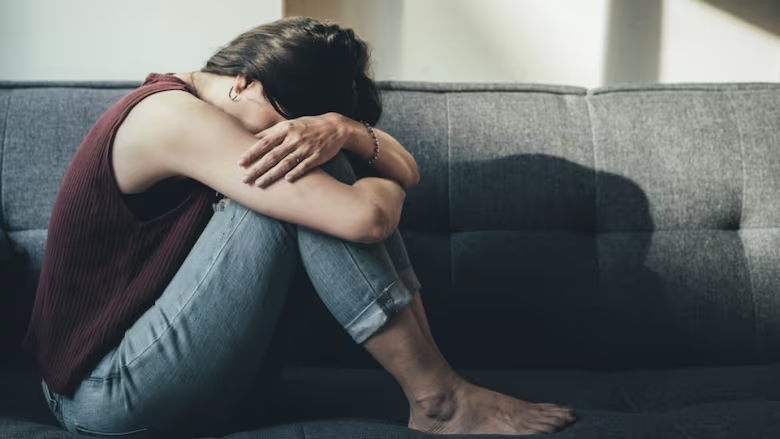Suicidal thoughts, planning 'significantly' higher in Waterloo region, report says
LGBTQ and Indigenous people had 3 to 4 times higher rates of mental illness and suicidal behaviour

The prevalence of mood disorders, suicidal thoughts and planning are "significantly" higher in Waterloo region than the provincial average, with some groups of people being more vulnerable than others, a new report shows.
The report, A Community Profile on Suicide and Self-harm in Waterloo Region, was brought to the region's community services committee on Tuesday. It's the first phase of a longer term research project between Region of Waterloo Public Health and the Waterloo Region Suicide Prevention Council.
"We tried to do a really deep dive and comprehensive look at all the existing data sources in the community that could provide some insight into what is going on in terms of who is dying by suicide and who is attempting suicide in Waterloo region," Jessica Deming, an epidemiologist with public health and the author of the report, told CBC Kitchener-Waterloo.
Deming said they looked at a number of different data sources, including the Canadian Community Health Survey, and found that the prevalence of suicidal thoughts in someone's lifetime was five percent higher in the region, while suicidal planning was four per cent higher than the provincial average.
Waterloo region rates versus the provincial average from the report:
| Waterloo region | Ontario |
|---|---|
| Mood disorders: 12.2 per cent | Mood disorders: 8.7 per cent |
| Lifetime suicidal thoughts: 15.3 per cent | Lifetime suicidal thoughts: 10.7 per cent |
| Lifetime suicidal planning: 7.4 per cent | Lifetime suicidal planning: 3.7 per cent |
Higher rates in some groups
Females aged 15 to 24, people with low income, LGBTQ and Indigenous people in the region had higher rates of mental illness and suicidal behaviour, according to the report.
However, LGBTQ and Indigenous people had three to four times higher rates of mental illness and suicidal behaviour than the overall rate in Waterloo region.
"What we found is something completely in line with what research evidence says in particular with LGBTQ and Indigenous peoples," Deming said.
Washington Silk, coordinator of the OK2BME program at KW-Counselling Services, told CBC News LGBTQ individuals in the region often feel they have a lower sense of belonging.
Silk, who is also a therapist, said transgender individuals also feel isolated when they reach out for help and when seeking medical providers to help them transition.
"There are very few medical providers in the region who can adequately provide this kind of care, so people go on wait lists and that can be quite distressing," Silk said.
Filling in the gaps
Even though there is a lot of community information available, Deming said the data they looked at didn't point to why suicidal thoughts and mood disorders are higher in Waterloo region.
They also found that little is known about suicidal behaviours in post-secondary students, despite the large student population, as well as in transgender individuals.
The report said it's unknown to what extent vulnerable individuals, or those who died by suicide, had come in contact with health care and mental health providers.
Deming said phase two of the research project, which will launch later this year, will focus on answering those questions in hopes of helping service providers better provide care in the region.
If you're experiencing suicidal thoughts or having a mental health crisis, there is help out there:
- Here 24/7 1-844-437-3247 (TTY: 1-877-688-5501) or visit here247.ca.
- K-W Counselling Services 519-884-0000.
- Canadian Mental Health Association Waterloo Wellington general information 1-844-264-2993.
- Contact ConnexOntario at 1-866-531-2600 for help funding local addiction, mental health and problem gambling treatment services.
- Kids Help Phone 1-800-688-6868.